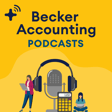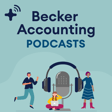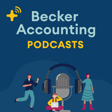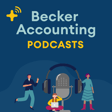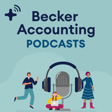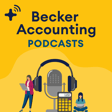
Balancing the Future Ep. 17 - Risks and Rewards of Emerging Technologies with Dr. Sean Stein Smith
Dr. Sean Stein Smith is an accounting professor at Lehman College and a leading educator on emerging technologies’ impact in the accounting profession. He joins our host to discuss AI, Bitcoin, Blockchain, and other technologies as they apply to an accountant’s ability to provide broader, more efficient client services. He stresses the importance of embracing learning as part of business transformation—not forgetting a healthy dose of foundational knowledge and critical analysis when using automation. Learn more about the changing industry landscape and best implementation practices for accountants.
Earn CPE by listening to this podcast through a Becker Prime CPE subscription.
Listen to this episode through your Becker LMS platform to complete practice questions, pass the final exam, and earn CPE credit.
Already a Becker Prime CPE customer? Login here.
Have access to Becker CPE through your employer? Earn CPE credit for this podcast however you consume Becker CPE, either through your company’s LMS or via the Becker platform. Not sure where to log in? Check with your CPE admin.
Learn more about CPE Podcasts from Becker: https://www.becker.com/cpe/becker-podcasts
